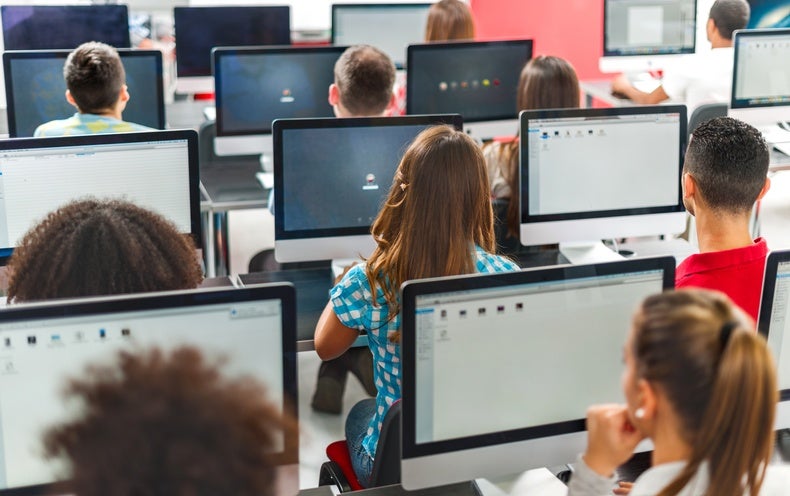ChatGPT, an AI writing tool, is now acing college-level questions, sometimes even outdoing human students, as per a study from New York University Abu Dhabi. This revelation isn't just about tech prowess—it’s igniting a broader debate on education's essence. Are students merely chasing grades, or do they value genuine learning? As educators scramble to adapt, some see AI not as the classroom's villain but a catalyst, urging a shift from rote learning to real understanding. After all, at the heart of education isn't just about scoring an A, but nurturing curious minds.

In the heart of California's academic sphere, Cal State Northridge's media history professor isn't just teaching about AI chatbots like ChatGPT—she's using them to reshape her classes. Elizabeth Blakey's approach to college lectures is reminiscent of a Steve Martin quip: teaching is akin to showbiz. But the entrance of AI chatbots—capable of lecturing, drafting essays, and even taking exams—presents a new co-star on the academic stage. Should educators fear being upstaged by a digital counterpart?
Blakey suggests not. She recalls how past fears, like video's anticipated obliteration of radio, didn’t materialize. Similarly, AI shouldn't be seen as a threat to education but as an engaging educational tool. Rather than passively cautioning students against plagiarizing with AI, Blakey's strategy embraces it. This semester, her lessons are designed to include chatbots directly, emphasizing the human advantage in creativity and critical thinking.
Many students are already familiar with ChatGPT. Some have found uses in daily tasks, like drafting quick customer service responses. But while chatbots can handle routine tasks efficiently, they struggle with more intricate assignments. This limitation, Blakey believes, is a teaching opportunity. By having AI draft outlines or essays, students can then refine, restructure, and reimagine the content, promoting original thought.

As AI finds its voice in the world of art, a pressing question emerges: Can machine-made creations truly be labeled as 'art'? While AI dazzles with crafted tales and harmonious tunes, they often lack the heartbeat of human experience—those intangible whispers of stories lived and raw emotions poured. Take animation, for instance. Despite AI's efficiency, the human touch in each hand-drawn frame sings a song of irreplaceable warmth, capturing our collective longing in a digital era.
Music, literature, architecture—all resonate with nuances that machines struggle to grasp. The soulful cry in a jazz rift, the passion behind a handwritten letter, or the emotions enveloped within architectural walls speak of a humanity that AI, despite its advancements, cannot mimic. In the dance between AI and art, it’s clear that while AI might master the steps, the human spirit remains the soulful music to which they're set.

In recent financial headlines, Nvidia, the renowned chipmaker, saw a spectacular quarter. Their revenue skyrocketed, doubling from the previous year. While these numbers are impressive, they reveal a larger narrative about the future of artificial intelligence (AI) and the physical hurdles that accompany its digital advancements.
Nvidia's claim to fame, the graphics processing unit (GPU), has long powered the gaming universe. Now, GPUs have become the backbone of AI systems, including those like ChatGPT. This shift has led to an increasing demand in the AI market, outstripping the current supply of these chips. The positive side? Nvidia is thriving. The downside? AI start-ups are hitting a brick wall, as the supply constraints limit the evolution and deployment of new AI services.
However, beyond these immediate constraints lies another concern. Chips require power, and as AI's hunger grows, so does its energy consumption. It's astonishing to think that AI processing at companies like Google equates to the energy consumption of entire cities. Addressing this energy dilemma will not only require massive power generation but a collective effort between utilities, governments, and regulatory bodies. As we advance, the conundrum remains: How do we fuel the AI revolution without compromising our planet? The answer? Perhaps a return to nuclear energy, offering emission-free power at an unparalleled scale. As we peer into the AI-driven future, it's crucial to prepare and strategize, ensuring both silicon and human worlds can coexist and flourish.






